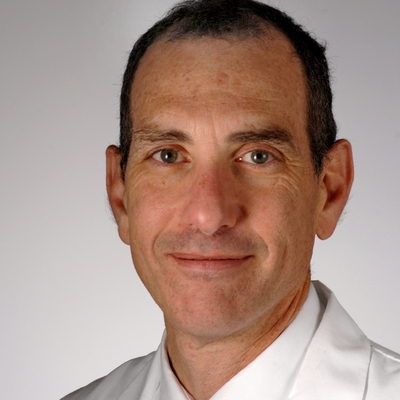
Director, NIH MD/PhD Partnership Training Program
Chief, Clinical Retrovirology Section,
National Cancer Institute
Dr. Frank Maldarelli received his Ph.D. from the City University of New York and his M.D. from Mount Sinai School of Medicine. After completing his residency in internal medicine at The Columbia-Presbyterian Hospital, New York, he joined the Laboratory of Molecular Microbiology at the National Institute of Allergy and Infectious Diseases (NIAID) as a Medical Staff Fellow. In 1998, Dr. Maldarelli joined the HIV Drug Resistance Program (HIV DRP, renamed the HIV Dynamics and Replication Program in 2015) in the National Cancer Institute (NCI) as a Staff Clinician. In 2012 he was appointed as a Tenure-Track Investigator, and he was promoted to a tenured Senior Investigator position in 2018. In this role, Dr. Maldarelli develops and implements clinical protocols to elucidate mechanisms underlying the emergence of HIV drug resistance in vivo, the dynamics of infection under treatment, and the role of resistance mutations in the efficacy and failure of subsequent treatments.
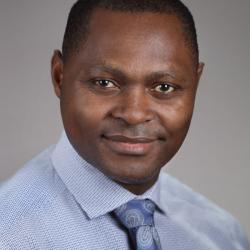
Sean Agbor-Enoh, M.D., Ph.D.
Lasker Clinical Research Fellow
NIH Distinguished Scholar
National Heart, Lung, and Blood Institute
Dr. Sean Agbor was born and raised in Cameroon, Central Africa. He received his M.D. at the University of Yaounde, Cameroon, after which, through a Fogarty International Center Scholarship, he travelled to Georgetown University Medical Center, Washington DC. There, he completed his Ph.D. and post-doctoral training in Molecular Biology followed by Internal Medicine internship and residency at Johns Hopkins Bayview Medical Center. He also served as Chief Resident in Internal Medicine before completing a joint fellowship in Pulmonary and Critical Care Medicine at the NIH Clinical Center and Johns Hopkins Hospital. He then accepted a clinician scientist position in Dr. Hannah Valantine’s Lab at the NHLBI before applying for and receiving the NIH-Lasker Clinical Research Fellow Award and NIH Distinguish Scholar Award. Currently, he has a joint appointment as a tenure-track investigator at NHLBI Pulmonary Branch and as a lung transplant pulmonary physician at the Johns Hopkins Hospital. His Laboratory of Applied Precision Omics (APO) is based at NHLBI and aims to develop novel approaches to detect and treat transplant rejection.

Christina M. Annunziata, M.D., Ph.D.
Senior Investigator
National Cancer Institute
Dr. Annunziata is a graduate of Georgetown University Medical School where she also completed graduate school and residency training in internal medicine. She came to NCI for medical oncology training in the Medical Oncology Branch. Dr. Annunziata joined the laboratory of Dr. Louis Staudt in the Metabolism Branch to investigate NF-kappaB signaling in multiple myeloma. She returned to the Medical Oncology Branch to extend her study of these molecular pathways in the ovarian cancer model, and she maintains her clinical focus in the translational clinical studies of ovarian cancer. Dr. Annunziata now directs clinical operations for the Women's Malignancies Branch and received tenure from NIH in 2020. Dr. Annunziata holds board certification for the practice of medical oncology. Dr. Annunziata is a participating member in the Gynecologic Oncology Group, the American Association for Cancer Research, the American Society for Clinical Oncology, and the Society of Gynecologic Oncology. She serves as course director for the Women's Malignancies Lecture Series in the Women's Malignancies Branch, and Associate Editor for the international journal, BMC Cancer.
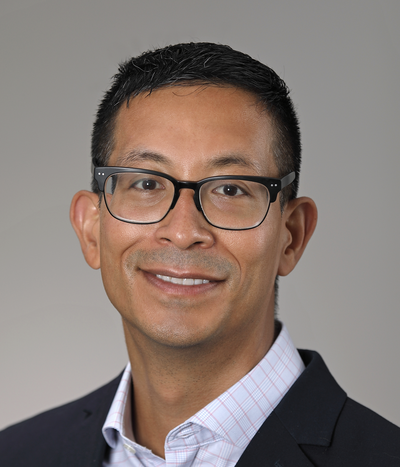
Freddy E. Escorcia, M.D., Ph.D.
Lasker Clinical Research Scholar
National Cancer Institute/Center for Cancer Research
Dr. Escorcia’s journey began in a small coastal town on the Atlantic side of Nicaragua, continued through to Toronto, Ontario, then to central Illinois. He earned his undergraduate degrees in bioengineering and chemistry at the University of Illinois at Urbana-Champaign, igniting his interest in science and medicine, and prompting enrollment in the Tri-Institutional M.D./Ph.D. Program of Weill Cornell Medical College, Memorial Sloan Kettering Cancer Center (MSKCC) and Rockefeller University in New York, NY. Dr. Escorcia’s thesis work involved engineering tumor-targeted antibodies and polymers to delivery cytotoxic alpha-particle radionuclide payloads. This experience with harnessing radiation for cancer therapy led to Dr. Escorcia’s pursuit of a radiation oncology residency at MSKCC and continues to drive his research and clinical interests as an Assistant Clinical Investigator within the Molecular Imaging Branch and the Radiation Oncology Branch at NCI's Center for Cancer Research. Dr. Escorcia enjoys working with and learning from trainees, recently earning a Distinguished Mentor Award. Outside of the lab Dr. Escorcia is enjoys traveling, reading, weight training, and spending time with his family.

Mariana J. Kaplan, M.D.
Senior Investigator
National Institute of Arthritis and Musculoskeletal and Skin Diseases
Mariana Kaplan, M.D., joined NIAMS as Chief of the Systemic Autoimmunity Branch in 2013. She is also Deputy Scientific Director at NIAMS. Before her appointment, she was a Professor of Medicine in the Division of Rheumatology at the University of Michigan. Dr. Kaplan obtained her medical degree at the National Autonomous University of Mexico and did her Internal Medicine Residency at the National Institute of Medical Sciences and Nutrition in Mexico City. Dr. Kaplan did her Rheumatology Fellowship and postdoctoral training at the University of Michigan, where she was a member of the faculty for 15 years and an active member of their Multidisciplinary Lupus Clinic.
In addition to her research activities, Dr. Kaplan is an active clinician and teacher. She sees lupus patients in the NIH Clinical Research Center and is involved in the development of various clinical trials for patients with autoimmune diseases at NIH. She has served in numerous roles at the American College of Rheumatology/Rheumatology Research Foundation, the American Association of Immunologists, and the Lupus Foundation of America. She was inducted to the American Society for Clinical Investigation and the Association of American Physicians (AAP) and received the Henry Kunkel Young Investigator Award and the Edmund L. Dubois Memorial Lectureship, both from the American College of Rheumatology. Dr. Kaplan received the 2015 Evelyn V. Hess Award from the Lupus Foundation of America in recognition of her significant contributions to lupus research, diagnosis, and treatment. In 2016, she received the Charles L. Christian Award for significant impact on the understanding of lupus. Dr. Kaplan is on the Editorial Board of the Journal of Clinical Investigation and Deputy Editor of Arthritis & Rheumatology. She is currently a council member at the AAP. In 2021, she was elected to the National Academy of Medicine for seminal contributions that have significantly advanced the understanding of the pathogenic role of the innate immune system in systemic autoimmune diseases, atherosclerosis, and immune-mediated vasculopathies.
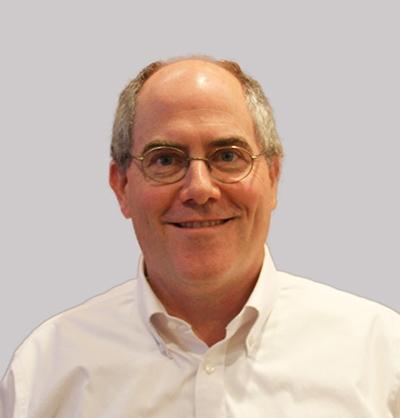
Andrew Mammen, M.D., Ph.D.
Investigator
National Institute of Arthritis and Musculoskeletal and Skin Diseases
After obtaining his M.D. and Ph.D. at Johns Hopkins, Dr. Mammen completed his neurology residency and neuromuscular fellowship at the same institution. He co-founded the Johns Hopkins Myositis Center in 2007. He and his colleagues discovered a novel form of autoimmune myopathy associated with statin use and autoantibodies recognizing HMG-CoA reductase, the pharmacologic target of statins. In 2014, Dr. Mammen moved to the NIH, where he is an Investigator and Leader of the Muscle Disease Unit. In addition to seeing myositis patients at the NIH Clinical Center, he maintains an appointment as Adjunct Professor of Neurology and Medicine at Hopkins, where he continues to see patients at the Myositis Center.

Joseph A. Mindell, M.D., Ph.D.
Senior Investigator
National Institute of Neurological Disorders and Stroke
Dr. Mindell received his B.S. degree in Molecular Biophysics and Biochemistry from Yale University in 1986. In 1994 he received his M.D. and Ph.D. degrees from the Albert Einstein College of Medicine, where he worked with Alan Finkelstein studying the structure and function of ion channels formed by diphtheria toxin. After a residency in internal medicine at Brigham and Women's Hospital, Dr. Mindell did post-doctoral work with Chris Miller at Brandeis University; there he focused on structural and functional characterization of ClC-type chloride channels using cryoelectron microscopy and other approaches. Dr. Mindell joined NINDS as an investigator in 2002. His laboratory is using a combination of structural and functional approaches to answer mechanistic questions regarding ClC channels and other anion transport proteins.
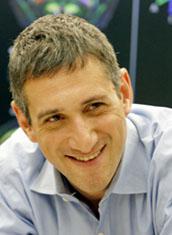
Chief, Translational Neuroradiology Unit, Neuroimmunology Branch
National Institute of Neurological Disorders and Stroke
MD/PhD Program Committee Member
Daniel Reich – a neurologist and neuroradiologist – directs the Translational Neuroradiology Unit in the National Institute of Neurological Disorders and Stroke, part of NIH. In his clinical practice, he cares for patients with multiple sclerosis and other neurological diseases, and he also leads several clinical studies focusing on multiple sclerosis. Research in his lab focuses on the use of advanced MRI techniques to understand the sources of disability in multiple sclerosis and on ways of adapting those approaches for research trials and patient care. He is particularly interested in harnessing noninvasive imaging modalities to dissect biological mechanisms of tissue damage.
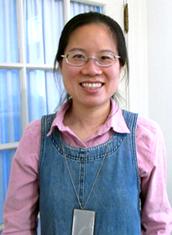
Chief, Human Immunological Diseases Unit,
Laboratory of Host Defenses,
National Institute of Allergy and Infectious Diseases
MD/PhD Program Committee Member
Dr. Helen Su received M.D. and Ph.D. degrees from Brown University. She completed training in pediatrics at St. Louis Children’s Hospital, Washington University, and subspecialty training in allergy and immunology at NIAID. After postdoctoral training in the Laboratory of Immunology, she joined the Laboratory of Host Defenses in 2007 as a tenure-track clinical investigator. Her laboratory focuses on understanding the molecular mechanisms regulating the human immune system and how their derangements cause disease, with the objective of improving diagnosis and treatment. Currently they are working on studying patients with a spectrum of poorly characterized, inherited immunodeficiencies and autoimmune diseases, who lack molecular diagnoses. Dr. Su’s lab has established close collaborations with several groups at the NIH to study these rare diseases, including the Laboratory of Immunology and the Laboratory of Clinical Infectious Diseases within NIAID and others outside NIH.

Michael E. Ward, M.D., Ph.D.
Investigator
Laboratory of Host Defenses,
National Institute of Neurological Disorders and Stroke
Dr. Ward received his B.S. from Kenyon College in 1999 and M.D. and Ph.D. degrees from Washington University in St. Louis in 2007. As a graduate student, he worked in Yi Rao’s lab and studied the regulation of cell migration during neurodevelopment. Following a neurology residency at the University of California in San Francisco, he sub-specialized in behavioral neurology and completed a postdoctoral fellowship in Li Gan’s lab studying basic mechanisms of frontotemporal dementia. As a fellow he received an American Brain Foundation CRTF award and a NIH K08 career development award. In 2015 he joined the NINDS as an Assistant Clinical Investigator. His research focuses on identifying intersecting mechanisms of neurodegenerative diseases, with an ultimate goal of developing targeted, disease-modifying therapies for affected patients.

